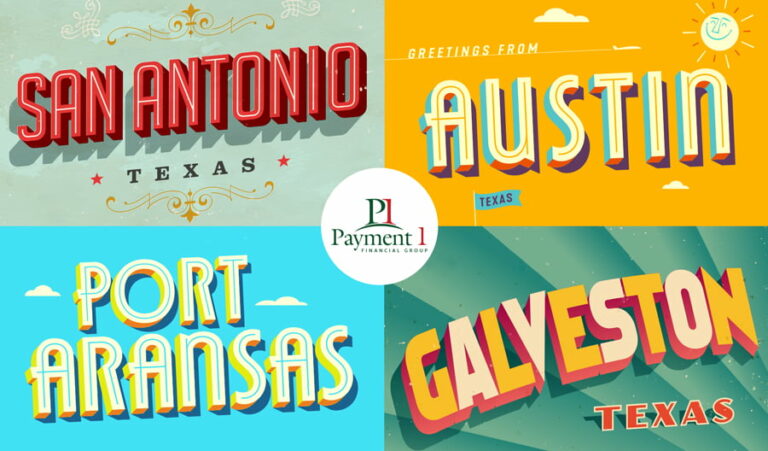Taking Out A Loan in Oklahoma: What Are Your Options?

Many low-income Oklahoma residents face financial challenges, making it difficult to cover unexpected expenses or bridge budget gaps. According to the 2022 Census Bureau American Community Survey, Oklahoma’s poverty rate (15.6 percent) was the nation’s tenth highest, rising slightly in 2021 compared to pre-pandemic levels (15.2%).
When faced with a financial emergency, it is critical to have quick access to cash. If your credit score is less than stellar, you may believe you have few options. This article will go over the possible ways you can get a loan in Oklahoma, as well as your rights as a consumer.
Understanding Loans in Oklahoma
Oklahoma has its own legal framework and loan regulations. Becoming acquainted with these guidelines is critical to protecting your consumer rights.
Oklahoma Statute 14A-3-502
According to Oklahoma statute 14A-3-502, all supervised lenders operating in the state must get a license from the Department of Consumer Credit. This is to ensure supervised lenders conduct themselves ethically. A “supervised lender” can make or accept supervised loan assignments. A “supervised loan” is a consumer loan with a loan finance charge that exceeds 10% per year, as determined by the loan finance charge provisions for consumer loans.
Fair Debt Collection Practices Act (FDCPA)
Debt collectors frequently use abusive and illegal phone calls to collect debts, causing victims fear and distress. These aggressive collectors leave incriminating messages containing offensive language, violent threats, and profanity. The Fair Debt Collection Practices Act (FDCPA) protects you from harassment and prohibits debt collectors from engaging in deceptive or fraudulent practices. It will also protect you from unfair collection practices such as demanding more money than the original contract or unlawfully repossessing property.
Loan Options in Oklahoma
We’ve listed down the loan options available to you in Oklahoma:
Traditional bank loans
Traditional bank loan interest rates in Oklahoma vary depending on a number of factors, including the type of loan, your creditworthiness, and market conditions. They usually have lower interest rates than alternatives such as payday or high-interest installment loans. For example, depending on the loan term, the Bank of Oklahoma’s home equity loan interest rates range from 6.63% to 7.04% APR.
Credit union loans
Like traditional banks, credit unions offer loans with more flexible terms and lower interest rates. If you want low-interest loans, you should consider joining a credit union. Home equity loans provided by the Oklahoma Central Credit Union have an APR of 6.99%. For personal loans, they offer unsecured loans at 10.99% APR.
Installment loans
With installment loans, you get a lump sum that you will repay regularly. They can be an alternative if you have poor credit, as some lenders consider other factors beyond credit scores. Unfortunately, while installment loans are convenient, they are also costly in terms of interest. Interest rates can range from 5.99% to 35.99%.
Online loans
Online instant funding services have become a convenient way to get quick funds and online loans in Oklahoma typically have a range of interest rates, as well as choices for payment terms. For example, Payment 1 offers flexible payment plans: weekly, bi-weekly, monthly, or semi-monthly.
Increasing your Chances to Get a Loan in Oklahoma
If you have bad credit or a low income, getting a loan in Oklahoma or anywhere else can be difficult. However, you can take steps to improve your chances of loan approval.
Improve your credit score
Your credit score heavily influences loan approval decisions. You can do the following to enhance your credit score:
- Always pay your bills on time, including rent, utilities, and credit card bills.
- Reduce your outstanding debt by paying down existing balances and avoiding unnecessary credit card use.
- Review your credit report regularly for any errors or inaccuracies. To ensure accurate credit information, promptly dispute and correct them.
Establish stable employment
Lenders also look for stable employment, so consider the following:
- Show a consistent work history and avoid frequent job changes.
- Provide proof of income. Prepare documentation, such as pay stubs or tax returns, to demonstrate your financial stability.
Show a solid financial profile
Here are some ways to build a strong financial profile:
- Create a savings account and add funds to it regularly. This demonstrates fiscal responsibility as well as a safety net for unanticipated expenses.
- Reduce your debt-to-income ratio by reducing the number of outstanding debts, such as credit card balances or personal loans.
- Limit new credit applications to avoid additional credit inquiries, which can harm your credit score.
Consider using collateral or getting a co-signer
If you have bad credit or are having difficulty meeting lender requirements, collateral or a co-signer can help your loan application.
- To secure the loan, offer valuable assets as collateral, such as a vehicle or property. This can increase your chances of approval because it reduces the lender’s risk.
- Find a reliable person with good credit and a steady income to co-sign the loan with you. Their solid credit history can help alleviate any concerns about your creditworthiness.
Final thoughts
When applying for a loan in Oklahoma, it’s critical to understand your options and the state’s legal framework and lending regulations. While this article has provided an overview of loan options and loan eligibility strategies, you should always research and compare offerings from lenders to find the best fit for your specific needs and circumstances.
Payment1 is one of the most reputable lenders in Oklahoma. Our online instant funding services offer a convenient and accessible solution, ensuring quick access to funds with flexible payment plans. Our expert lending team will gladly assist you and answer any questions. Contact us today.


